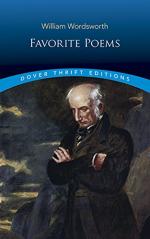
|
| Name: _________________________ | Period: ___________________ |
This test consists of 15 multiple choice questions and 5 short answer questions.
Multiple Choice Questions
1. What is the best definition of "sublime" in the context of line 38?
(a) Transcendent experience.
(b) To purify or refine.
(c) Complete and total.
(d) Passing from one phase of matter into another.
2. What are "copses" (line 14)?
(a) The decayed remains of buildings.
(b) Stands of trees and brush.
(c) Shallow dips in the landscape.
(d) Spots of contrasting color.
3. The word "murmur" in line 4 is an example of which technique?
(a) Onomatopoeia.
(b) Vernacular diction.
(c) Oxymoron.
(d) Pejorative diction.
4. What modern description might we give of the state that the speaker describes toward the end of the second verse paragraph?
(a) Hypnotic trance.
(b) Meditation.
(c) Unconsciousness.
(d) Hallucination.
5. What does the speaker mean when he says he was "'mid the din/ Of towns and cities" (lines 26-27)?
(a) In the city, he was surrounded by crowds and confusion.
(b) In the city, he was often tired and hungry.
(c) In the city, he was often forced to hurry and rush through things.
(d) In the city, he was surrounded by loud, unpleasant noise.
6. Which is the most reasonable interpretation of the speaker's line 19 mention of "some uncertain notice"?
(a) The trees are unaware of the people beneath them.
(b) He is not sure whether he is imagining the smoke.
(c) The smoke's meaning is unclear.
(d) The trees obscure his vision.
7. What sets line 22, "The Hermit sits alone," apart from the preceding 21 lines?
(a) Its syntax.
(b) Its perspective.
(c) Its length.
(d) Its tone.
8. Which is the best definition of "sportive" in the context of line 16?
(a) Carried away by playful emotion.
(b) Ungovernable, unmanageable.
(c) Competitive to the point of aggression.
(d) Of or related to sports.
9. What paradox does the speaker introduce at the end of the second verse paragraph?
(a) He can move more quickly without using his body.
(b) He can see more clearly without using his vision.
(c) He can exercise more discipline without using his will power.
(d) He can understand more thoroughly without using his mind.
10. What kind of image opens the poem?
(a) An olfactory image of smoke.
(b) A visual image of the mountains.
(c) An auditory image of the water.
(d) A tactile image of the grass and tree bark.
11. Which of the following describes the term "pastoral farms" (line 16)?
(a) Oxymoron.
(b) Hyperbole.
(c) Pleonasm.
(d) Paradox.
12. In line 26, how does the speaker characterize the rooms he has been in in the city?
(a) "Lonely."
(b) "Dim."
(c) "Secluded."
(d) "Darkened."
13. Lines 18 and 19, "Sent up, in silence, from among the trees!/ With some uncertain notice, as might seem," contain which two techniques?
(a) Litotes, anaphora.
(b) Sibilance, litotes.
(c) Anaphora, assonance.
(d) Assonance, sibilance.
14. What kind of tree does the speaker mention being under?
(a) Chestnut.
(b) Sycamore.
(c) Aspen.
(d) Oak.
15. Which is the best interpretation of lines 30-31, "And passing even into my purer mind/ With tranquil restoration"?
(a) The memories made the speaker feel calm and refreshed.
(b) The speaker was often distracted by boredom and negative thoughts.
(c) The speaker made a conscious effort to focus on the memories.
(d) Only when the speaker was quiet and still could he perfectly remember the landscape.
Short Answer Questions
1. What kind of confusion does the speaker find himself able to shrug off when he remembers the landscape?
2. How long has it been since the speaker was last in this place?
3. Who is the author of "Tintern Abbey"?
4. What kind of building is an abbey?
5. Which is most likely to be the intended effect of the repetition and redundancies throughout the first two verse paragraphs?
|
This section contains 641 words (approx. 3 pages at 300 words per page) |

|




